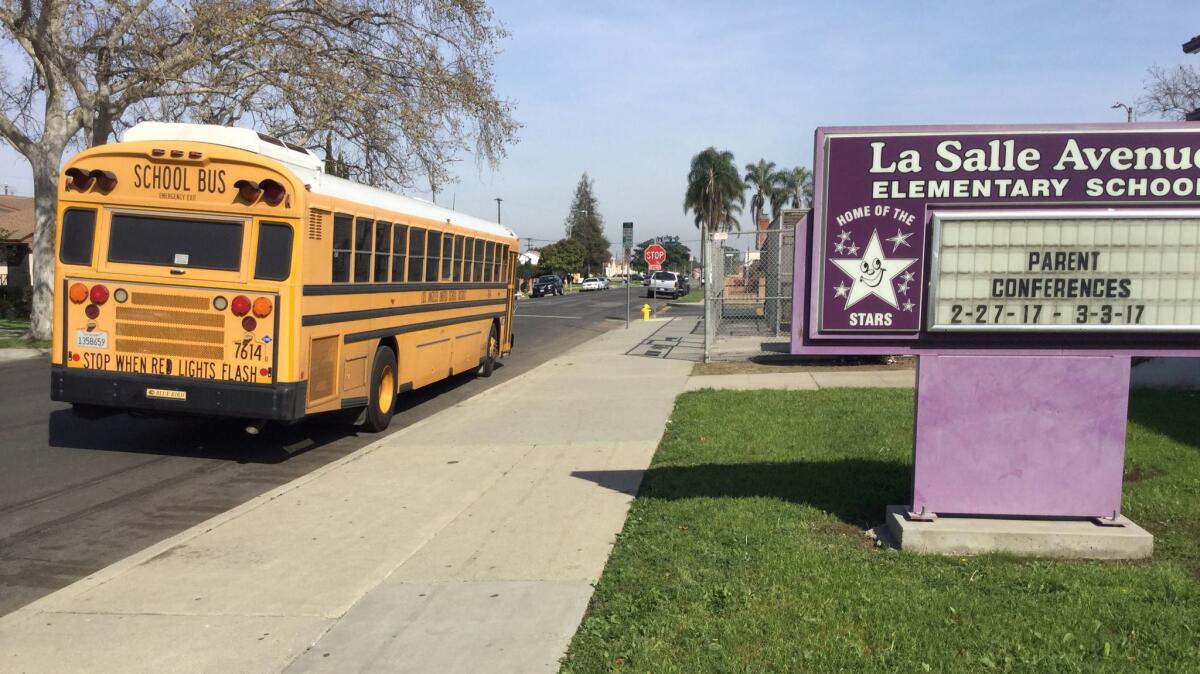Letters to the Editor: School libraries are key to boosting literacy. Why aren’t we improving them?

- Share via
To the editor: It is both disheartening and discouraging that no connection was made between low literacy scores and the gutting of school library funding in California. (“California students sued because they were such poor readers. They just won $53 million to help them,” Feb. 20)
You learn to read by reading, but you must have something to read first. Research clearly supports the notion that the best predictor of reading in schools that serve children living in poverty is the quality of the school library.
It is recommended that schools have an average of 28 books per child and that the collection is replenished every few years. California schools like those in the lawsuit have on average 10 books per child (some can have as few as five) and the books are outdated, tattered and uninteresting. Some date back to the 1950s.
Sadly, the “novel” approach to low literacy scores that will be used in California schools will not actually include novels.
Rebecca Constantino, Los Angeles
The writer is founder and executive director of the literacy advocacy group Access Books.
..
To the editor: A child’s first teacher is the parent. Not only did the parents of children who scored low on literacy tests fail these children, the teachers did too.
At age 4, my son knew how to not only spell trapezoid, he could also properly identify the colors chartreuse and magenta.
What this lawsuit proves is that ignorance and incompetence will garner more funding when they should not. And if my tax dollars end up paying for this, consider me beyond ticked off.
Adonya Wong, Twentynine Palms
..
To the editor: Seventy-five elementary schools in California with low reading scores will receive funding to improve literacy development. The first step should be to make sure the children in these schools have plenty of access to reading material.
We know from decades of research that more access to books means more self-selected reading, which in turn means superior literacy development. This is supported by research showing that better school libraries and the presence of school librarians result in reading achievement.
We also know that children experiencing poverty have limited access to books at home, in their communities and in school, which helps explain why they typically have low reading achievement. For these children, a library is often their only source of books.
Stephen Krashen, Los Angeles
The writer is a professor emeritus of education at USC.
More to Read
A cure for the common opinion
Get thought-provoking perspectives with our weekly newsletter.
You may occasionally receive promotional content from the Los Angeles Times.









